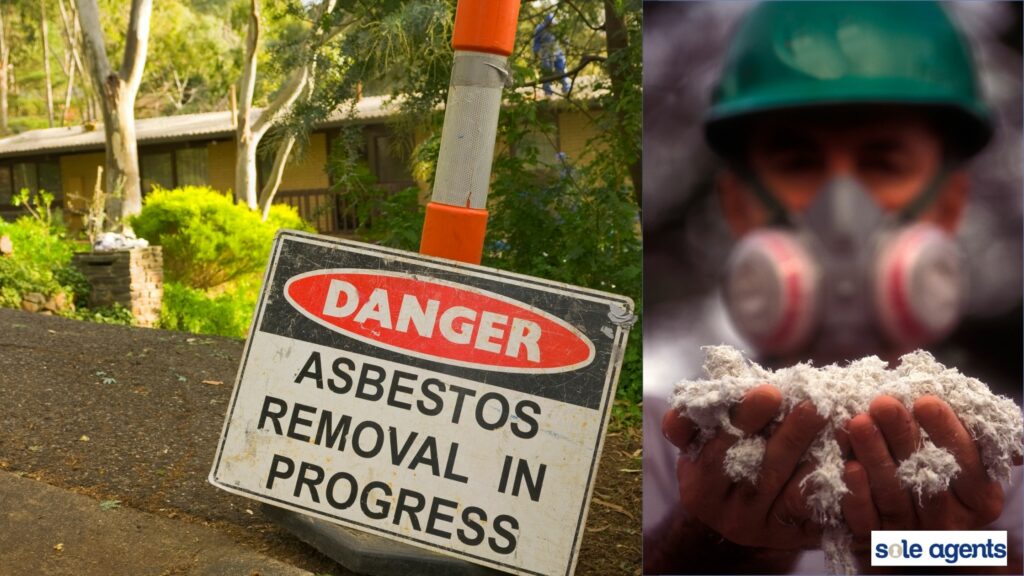Asbestos in New Zealand: What Landlords Need to Know

When renting out properties in New Zealand, landlords have a duty of care to ensure their properties are safe for tenants. One significant hazard that landlords should be aware of is asbestos. Understanding asbestos and its risks, as well as knowing how to manage it, is crucial for protecting the health and safety of tenants and complying with legal obligations. Here, we’ll explore what asbestos is, where it’s commonly found, the associated health risks, legal requirements for landlords, and how a property manager can assist in dealing with asbestos-related issues.
What is Asbestos?
Asbestos is a naturally occurring mineral that was widely used in construction materials in New Zealand up until the late 1980s due to its fire resistance, durability, and insulating properties. However, it was later discovered that exposure to asbestos fibers can lead to serious health problems, including asbestosis, lung cancer, and mesothelioma. Consequently, the use of asbestos-containing materials (ACMs) has been banned in New Zealand since 2016.
Where is Asbestos Found in Residential Properties?
In properties built before 1990, asbestos may still be present in a variety of building materials, including:
- Roofing materials: Corrugated roofing sheets and tiles.
- Cladding: Exterior wall cladding such as fibrolite.
- Insulation: Insulation around pipes, heaters, and ceilings.
- Flooring: Vinyl flooring and adhesives.
- Ceilings and walls: Textured coatings or panels.
- Fencing: Cement-based fencing materials.
It’s important to note that asbestos in good condition is generally considered low risk. However, when disturbed—such as during renovations, maintenance, or weather damage—it can release harmful fibers into the air.
Health Risks of Asbestos Exposure
Inhalation of asbestos fibers can cause severe health issues, often many years after exposure. The primary risks include:
- Asbestosis: Scarring of lung tissue, leading to breathing difficulties.
- Mesothelioma: A rare and aggressive cancer affecting the lining of the lungs or abdomen.
- Lung Cancer: Prolonged exposure significantly increases the risk.
These risks underscore the importance of proper management and mitigation of asbestos hazards in rental properties.
Legal Obligations for Landlords
Under the Health and Safety at Work Act 2015 (HSWA), landlords have a responsibility to ensure their rental properties are safe and healthy. This includes identifying and managing asbestos risks. Key obligations include:
- Asbestos Identification: Landlords must identify whether asbestos is present in their property. If the property was built before 2000, it’s advisable to assume asbestos may be present unless confirmed otherwise by a professional survey.
- Asbestos Management Plans: If asbestos is found, landlords are required to prepare an asbestos management plan. This document outlines the location and condition of asbestos, as well as measures to manage the risk.
- Compliance with Regulations: Landlords must adhere to the Asbestos Regulations under the HSWA. This includes ensuring that asbestos removal work is carried out by a licensed professional and notifying WorkSafe NZ when required.
Failure to comply with these obligations can result in hefty fines and legal repercussions, not to mention the potential harm to tenants.
How Property Managers Can Help
Navigating the complexities of asbestos management can be overwhelming for landlords. This is where property managers can play a crucial role. Here are several ways property managers can assist:
- Identifying Potential Risks Property managers are experienced in identifying potential asbestos-containing materials during routine inspections or when onboarding a new property. They can recommend engaging a licensed asbestos assessor for a thorough survey if needed.
- Organizing Professional Testing If asbestos is suspected, property managers can arrange for professional testing and assessment. This ensures accurate identification and minimizes the risk of exposure.
- Creating an Asbestos Management Plan Once asbestos is identified, property managers can help landlords develop an asbestos management plan in line with regulatory requirements. They can also ensure this plan is regularly updated and accessible to tenants and contractors.
- Coordinating Repairs or Removal In cases where asbestos needs to be repaired or removed, property managers can liaise with licensed asbestos removalists. They’ll oversee the process, ensuring all work is completed safely and complies with WorkSafe NZ regulations.
- Tenant Communication Property managers can act as intermediaries between landlords and tenants, ensuring tenants are informed about any asbestos-related work and reassuring them that their health and safety are a priority.
- Record Keeping and Compliance Keeping accurate records of inspections, testing, and management plans is critical. Property managers can maintain these records and ensure the property remains compliant with legal requirements.
- Proactive Risk Management Property managers can implement proactive measures, such as scheduling regular property inspections, identifying risks early, and advising landlords on long-term maintenance strategies to minimise future asbestos-related issues.
The Cost of Inaction
Ignoring potential asbestos risks can have serious consequences for landlords. Apart from the health implications for tenants, landlords may face:
- Legal penalties and fines for non-compliance.
- Costs associated with emergency asbestos removal or property remediation.
- Damage to reputation and tenant relationships.
In Summary
Asbestos is a hidden danger that landlords must take seriously to protect their tenants and meet their legal responsibilities. With the assistance of a skilled property manager, landlords can effectively identify, manage, and mitigate asbestos risks in their rental properties. This not only ensures compliance with regulations but also fosters a safe and healthy living environment for tenants.
For landlords looking to streamline asbestos management and other property-related responsibilities, partnering with a Sole Agent property management expert is a wise investment. Their expertise and proactive approach can help safeguard your property, tenants, and peace of mind.
If you’d like to learn more about how Sole Agents can assist you with asbestos management or other property concerns, get in touch today for expert advice and tailored solutions.


